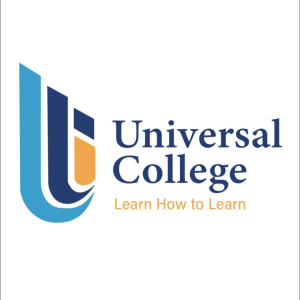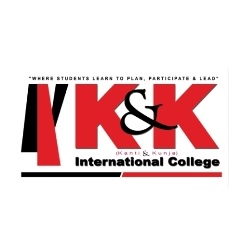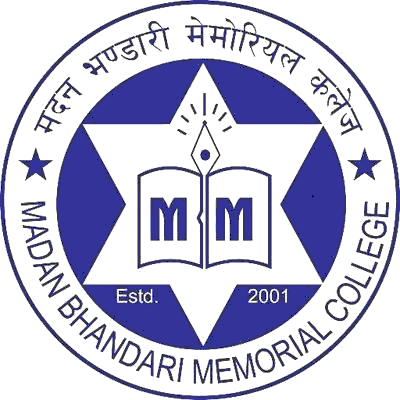Overview
Overviews of MA in Sociology at Ratna Rajya Laxmi Campus, Kathmandu, Nepal (affiliated with TU)
The Master of Arts (MA) in Sociology program, affiliated with Tribhuvan University (TU), provides a comprehensive understanding of societal structures, human behaviors, and cultural dynamics. It explores core sociological theories and research methods while encouraging students to critically analyze social institutions, conflicts, and transformations across diverse contexts. This two-year, four-semester program is tailored for those aiming to contribute academically and professionally in social sciences and related fields.
Program Duration
The program is two academic years and is divided into four semesters. Each semester consists of intensive coursework, assignments, and examinations. Students must complete 18 courses and a compulsory thesis in the final semester to graduate.
Eligibility Criteria
To apply for the MA in Sociology program, applicants must:
-
Hold a Bachelor's degree in Sociology, Anthropology, Social Work, Psychology, History, Geography, Economics, Political Science, or related fields.
-
Be graduates of faculties such as Education, Management, or Law.
-
Possesses degrees from institutes like Medicine, Engineering, Forestry, or Agriculture recognized by Tribhuvan University.
Admission Process
-
Entrance Examination: Applicants must appear for a one-hour entrance exam conducted by the Office of the Dean, Faculty of Humanities and Social Sciences, TU FOHSS.
-
Merit-Based Selection: Admission is based on merit, determined by the department's entrance exam performance and enrollment capacity.
-
Application Submission: Aspiring students must complete and submit an application form available at the campus administration office.
Course Outline
| Semester | Paper Code | Title of Course | Credit Hours | Remarks |
|---|---|---|---|---|
| 1st Semester | So561 | Introduction to Sociology | ||
| So562 | Qualitative Research Methods in Sociology | 3 | Required | |
| So563 | Structural-Functional Approach | 3 | Required | |
| So564 | Caste and Class | 3 | Required | |
| So565 | Theories of Social Change and Development | 3 | Required | |
| 2nd Semester | So571 | Marxist Perspective | 3 | Required |
| So572 | Quantitative Research Methods in Sociology | 3 | Required | |
| So573 | Practice of Social Change and Development in Asia | 3 | Optional (any 3) | |
| So574 | Politics and Society | 3 | ||
| So575 | Sociology of Health | 3 | ||
| So576 | Household and Family in Transition | 3 | ||
| 3rd Semester | So581 | World-System Perspective | 3 | Required |
| So582 | Basic Statistics in Sociological Research | 3 | Required | |
| So583 | Sociology of Gender | 3 | Optional (any 3) | |
| So584 | Identity, Inequality, and Intersectionality | 3 | ||
| So585 | Migration, Social Network, Remittance, and Development | 3 | ||
| So586 | Sociology of Ageing and Disability | 3 | ||
| So587 | Power, Leadership, Governmentality, and Development | 3 | ||
| So588 | Urban Sociology | 3 | ||
| So589 | Sociology of Disaster | 3 | ||
| 4th Semester | So591 | Agency/Micro vs. Structure/Macro Perspectives | 3 | Required |
| So592 | Survey Research and Computer Data Analysis | 3 | Required | |
| So593 | Thesis | 6 | Required | |
| So594 | Gender, Power, and Sexuality | 3 | Optional (any 1) | |
| So595 | Changing Livelihoods | 3 | ||
| So596 | Market and Society | 3 | ||
| So597 | Sociology of Education | 3 | ||
| So598 | Sociology of Tourism | 3 | ||
| So599 | Research Design and Writing | 3 |
Program Objectives
-
Provide students with an in-depth understanding of sociological theories and research methodologies.
-
Train students to analyze societal issues, structures, and transformations critically.
-
Develop professional skills for addressing developmental challenges and promoting social justice.
-
Equip students with the ability to conduct fieldwork, analyze secondary data, and produce high-quality research.
-
Prepare graduates to contribute to Nepal's development needs and global academic discussions.
Teaching Methodology
The program employs an interactive teaching methodology, combining lectures, seminars, fieldwork, and case studies. Students engage in practical assignments such as term papers, presentations, and research projects. Collaborative learning and peer discussions are encouraged to foster critical thinking and creativity.
Learning Outcomes
Graduates of the program will:
-
Master foundational and advanced sociological theories.
-
Acquire qualitative and quantitative research skills.
-
Develop critical thinking and analytical abilities.
-
Understand and address complex societal issues.
-
Prepare high-quality academic and professional reports.
Future Scope
The MA in Sociology program prepares students for:
-
Advanced academic pursuits such as MPhil or PhD programs.
-
Careers in policy-making, social research, and program evaluation.
-
Opportunities in international development, NGOs, and government organizations.
Career Prospects
Graduates can pursue roles such as:
-
Sociologists and social researchers.
-
Policy analysts and program evaluators.
-
Educators and academic researchers.
-
Consultants in social services and development sectors.
-
Professionals in health, education, and community development.
Scholarship Opportunities
RR Campus provides scholarships to academically outstanding and financially disadvantaged students. Scholarships from Tribhuvan University and other national and international organizations are also available for eligible candidates.
Fees Structure
The campus administration determines the program's fees. The campus office can provide detailed information.
Extracurricular and Co-Curricular Activities
Students can participate in seminars, workshops, and community outreach programs. These activities provide practical exposure and enhance their understanding of societal dynamics.
Real-World Application
The program emphasizes practical application through fieldwork, research projects, and case studies. Students learn to address real-world societal challenges and contribute to meaningful social change.
Sustainability and Social Impact
The curriculum highlights sustainable development and social justice, preparing students to tackle global challenges and create positive social impact.
Skill Development
The program develops skills in critical thinking, data analysis, effective communication, and research design, equipping students for diverse professional roles.
Global Perspective
The program integrates global sociological theories and practices, enabling students to understand and analyze international social phenomena.
Facilities and Support
RR Campus offers state-of-the-art facilities, including libraries, computer labs, and research centers. Students benefit from academic counseling and mentorship throughout the program.
Why Choose the MA in Sociology Program?
This program combines rigorous academic training with practical application, making it ideal for students passionate about understanding and addressing societal challenges. Its focus on critical thinking, research, and social justice ensures graduates can contribute significantly to academia and professional fields.
Why Study for an MA in Sociology at RR Campus?
RR Campus provides a dynamic learning environment with experienced faculty and modern resources. Its affiliation with Tribhuvan University ensures academic excellence, and the location in Kathmandu offers access to diverse societal contexts and professional networks. The program emphasizes theoretical depth and practical application, preparing students for impactful careers.
Is the MA in Sociology Program Right for You?
This program is an excellent fit if you are interested in understanding human behavior, social structures, and cultural dynamics. It caters to aspiring sociologists, researchers, and professionals aiming to make meaningful societal contributions.
What is the Future of the MA in Sociology Program?
With the increasing demand for social research and development experts, the program ensures graduates are well-prepared for impactful roles in academia, policy-making, and global development initiatives.
How to Improve Your Study of Sociology as a Student?
To excel in sociology, engage in fieldwork, actively participate in discussions, and stay updated on current social issues. Collaborate with peers and faculty for research projects and apply theoretical knowledge to analyze real-world challenges.
Conclusion
The MA in Sociology program at RR Campus offers in-depth knowledge that blends theoretical knowledge with practical experience. It prepares students to excel in diverse fields, contributing to societal development and academic research. By fostering critical thinking and a global perspective, the program ensures graduates are well-equipped to address complex social challenges.
Contact Ratna Rajya Laxmi Campus's administrative office for detailed information on the MA in Sociology course, including fees, scholarships, facilities, counseling, eligibility criteria, etc.



















